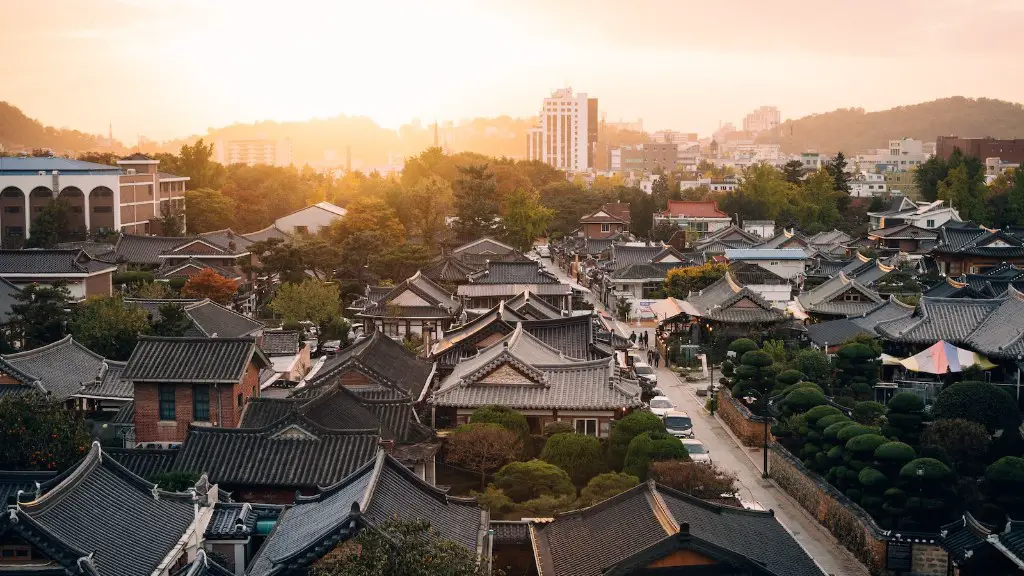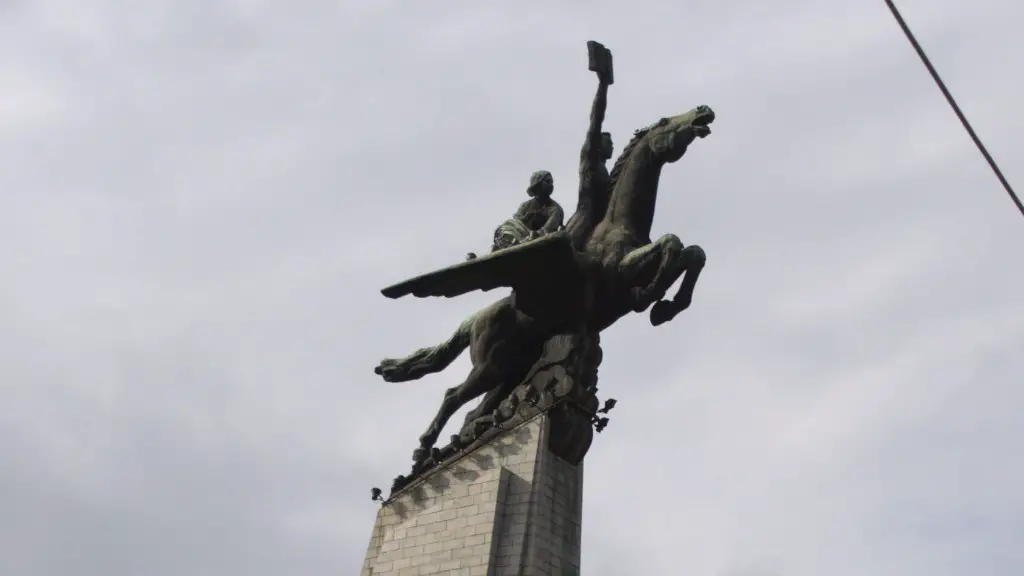North Korea
North Korea is a country caught up in international conflicts, with a deeply secretive regime that has become world-famous for violating international rules and maintaining an oppressive dictatorship. While North Korea is often described as a dystopian regime, there is a great deal of disagreement over whether or not this is an accurate description. To fully understand the issue, it is important to first look at the history and current situation of the country.
North Korea has long been recognized as one of the most isolated and secretive states in the world. Its citizens are not allowed to leave, and those who try often face severe punishments. This isolation has enabled the North Korean leaders to control citizens and create a regime that violates basic human rights including freedom of speech and religion. There is no freedom of the press, and citizens have limited access to news, information and technology. Most citizens do not have access to the Internet or mobile phones, and are strictly regulated by the regime.
The country is also known for its oppressive levels of human rights violations. North Korean citizens are routinely executed for certain types of dissent or opposition to the regime, and all citizens are subject to strict surveillance and punishment. North Korean leaders also maintain a cult of personality, with Kim Jong-Un and other members of the ruling family being seen as infallible gods by the citizens.
Evidence of a Dystopian Regime
This has led many experts, activists and international organizations to label North Korea as a dystopian society. A dystopian society is defined as a society that is oppressive and restrictive, characterized by limited freedom of expression, a lack of basic human rights, and government-controlled media. North Korea has all of those features, making it undeniably a dystopian regime in the eyes of many outside observers.
North Korea’s conditions are especially evident in its labor camps, which house up to 200,000 prisoners who suffer torture and brutal working conditions. In addition, North Korea has been accused of extreme acts of violence against citizens, including public execution and chemical and biological weapons attacks. These acts of violence and oppression were also recently highlighted in a United Nations report that included testimonies from North Korean defectors.
Different Perspectives
However, there are some who question whether or not it is accurate to label North Korea as a dystopian society. These people point to the fact that the citizens of North Korea still have access to basic services such as food and medical care, and that the government does not actively persecute its people for political reasons.
Proponents of this view also point to examples of a consumer culture which has emerged in North Korea, with citizens being able to buy consumer goods and luxury items from stores. This is in stark contrast to the remnants of a planned economy with the state still running many of the businesses. Accordingly, some believe this indicates that North Korea is not a complete dictatorship and that it is possible for citizens to enjoy some consumer luxuries and freedoms.
Analysis
Ultimately, the debate over whether North Korea can be classified as a dystopian society must be made on a case-by-case basis. It is true that certain elements of North Korean society can be described as dystopian. However, it is also true that North Korea is not a complete dictatorship and that its citizens are able to enjoy certain consumer freedoms. This means that the situation in North Korea cannot be categorized as definitive dystopian or utopian, but rather a combination of both.
Effects of Isolation
One thing that is undeniable about North Korea is that its citizens have suffered for decades due to the country’s isolation from the rest of the world. Its citizens have limited access to technology, international news and products, and even basic supplies are difficult to come by. This isolation has also made it difficult for citizens to travel outside of the country and access the world beyond its borders.
The effects of this isolation have been exacerbated by oppressive conditions and the lack of basic rights and freedoms that remain in place throughout the country. This has led to a decline in living standards and a lack of access to essential services. In addition, the combination of isolation and oppression has prevented citizens from engaging in meaningful political discourse and expressing their opinions.
Pressure From International Community
The international community has placed increasing pressure on North Korea in recent years in an effort to improve its human rights record and avert an international crisis. However, the country has largely refused to cooperate, instead continuing to engage in activities that are viewed as violations of international law. This has led to a stand-off between North Korea and the international community and has further reduced the chance of any meaningful improvements in the lives of North Korean citizens.
The international community has responded by imposing economic sanctions and other measures in an effort to pressure the country into compliance. There are also calls for a more comprehensive approach to the situation in North Korea, one that is focused on human rights and a peaceful resolution to the conflict.
North Korean People
At the same time, it is important to remember that the situation in North Korea is ultimately the responsibility of the North Korean people. It is their suffering that must be addressed if real change is to be achieved. This means that the international community must work with the North Korean people to ensure that they are fully informed of the situation and that the “information gap” between the outside world and North Korea is reduced.
This can be done by providing access to international news, information and technology, and by engaging in dialog with citizens. This will help to provide North Korean citizens with a better understanding of the issues facing their country and allow them to make informed decisions about how to move forward in pursuit of a more free and equitable society.
Engagement to Change
In order for the international community to develop a meaningful strategy for engagement in North Korea and to help bring about real change, it is important to understand and recognize the diverse perspectives on the issue. This includes understanding the points of view of North Korean citizens and the nuances of the situation within the country.
Only by engaging in meaningful dialog and collaboration between international actors, North Korean citizens, and the North Korean leadership can any real progress be made. Only then can the international community begin to work towards meaningful and lasting change in North Korea.


